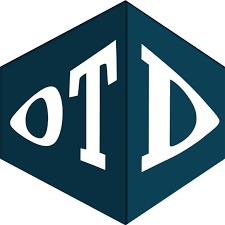Raboyseyee and Ladies,
The International Hooker:
As we get ready to read and hear Parshas Netzovim & Vayelech, the last double header of the year, it can only mean one thing: it’s also the last Shabbis of the year and Rosh Hashono is just around the corner. So happens that this year, it’s still one full week away.

Our rabbis tell us it is time to get ready. It’s been time since Rosh Chodesh Elul but did the sound of the shofar stir you? A nechtiger tug! Have you been getting ready? Or, are you busy chapping areyn the last sins of the year knowing that Yom Kippur is fast approaching and that the RBSO will likely forgive if you klap a few hundred ‘al cheyts’ and donate the appropriate amount of money?
What are most of us are ready for? For the stuffing of our faces with pounds of challah, kugils, red meat, and avada desserts. Ober first, and as mentioned just last week- you must be ready to pay the shul bills if you want your seats, and ready for the annual phone call asking for your Kol Nidrei pledge. We must also get ready and be in the right frame of mind to ask the RBSO for some serious forgiveness though you know full well -as does He- that you will more than likely resume and return to your normal behavior which is why you needed teshuva in the first place. The real teshuvah season begins in earnest one week from tonight as Yom Tov is ushered in and we beg to become fish heads, not tails, whatever that means.
Shoin, let’s learn some parsha. Lommer unfangin (let’s begin) with a shtikel chazora of what took place just last shabbis. In our last episode of gloom and doom, Moishe warned the Yiddin of the giferliche consequences to befall them were they to abandon the RBSO and his heylige Toirah. Mistama you’ve had nightmares thinking about the 98 -count ‘em- different curses Moishe laid out; double mamish the 49 he warned us about back in Parshas Bechukoiseye; who can blame you? After hearing those and knowing full well that many of you -Ois included- are deserving of most, if not all of them, efsher you’re klerring (thinking): does it even pay to continue shokeling, davening, and thinking about teshuvah (repentance) by mumbling a few selichois (penitential prayers for Divine forgiveness) and getting ready for the big days ahead? Are we not doomed? Ver veyst? Ober raboyseyee, a new season begins next week and hope springs eternal as it approaches; we approach with confidence. Why? Ver veyst? That being said, after hearing last week’s threats, the heylige Ois has been sleeping with one eye open thinking it’s all over; kaput, over and out.
Shoin, a new parsha -two of them- bring renewed hope as we read Netzovim and Vayelech. You will zicher enjoy, them, mostly because even when combined, they total 70 pisukim and the kiddish club will begin timely. As our parsha opens, Moishe, the fearless leader of the Yiddin is now a mature 120 years old, and, according to some, this is the last day of his life. Avada he will make it productive, and does so by delivering the last of four speeches, and his second farewell address. It is the seventh day of Adar. By the time night falls, the nation will mourn the loss of its greatest leader. The Yiddin are nebech freaking out, mamish; can you blame them?
And guess what? Parshas Netzovim continues the theme of the toichocho (rebuke) from last week’s parsha (Ki Sovoy for those who forgot), which -as mentioned above- described in detail the many punishments -vividly laid out in 53 consecutive pisukim- that the Yiddin will receive if they do not follow the RBSO’s laws.

Ober this week, Moishe adds a new detail: the goyim will hear what happened to the Yiddin and they will talk among themselves. Oy vey; what will the neighbors say? What will the goyim say? What could be worse than the goyim talking about the doomed Yiddin? So happens that back in 2018, the Ois decided to teach himself how to lain from the Toirah. Not an easy undertaking at my age, ober with dedication, time -if you chap- and with lots of practice, today, he can ready any parsha. And taka, this past Monday morning, as the Ois was laining in shul, a few pisukim -all part of the very first aliya, jumped out at him. Let’s read them: Says the heylige Toirah (Devorim 29), azoy:
וְאָמַ֞ר הַדּ֣וֹר הָֽאַחֲר֗וֹן בְּנֵיכֶם֙ אֲשֶׁ֤ר יָק֙וּמוּ֙ מֵאַ֣חֲרֵיכֶ֔ם וְהַ֨נָּכְרִ֔י אֲשֶׁ֥ר יָבֹ֖א מֵאֶ֣רֶץ רְחוֹקָ֑ה וְ֠רָאוּ אֶת מַכּ֞וֹת הָאָ֤רֶץ הַהִוא֙ וְאֶת תַּ֣חֲלֻאֶ֔יהָ אֲשֶׁר חִלָּ֥ה ה֖’ בָּֽהּ…
And later generations will ask—the children who succeed you, and foreigners who come from distant lands and see the plagues and diseases that the RBSO has inflicted upon that land…The nations ask why the RBSO did this?
כט:כג וְאָֽמְרוּ֙ כָּל הַגּוֹיִ֔ם עַל מֶ֨ה עָשָׂ֧ה ה֛’ כָּ֖כָה לָאָ֣רֶץ הַזֹּ֑את מֶ֥ה חֳרִ֛י הָאַ֥ף הַגָּד֖וֹל הַזֶּֽה:
29:23 all nations will say,“Why did the RBSO do thus to this land? Wherefore that awful wrath?” They will explain that it is because the Yiddin abandoned the RBSO to worship other gods.
כט:כד וְאָ֣מְר֔וּ עַ֚ל אֲשֶׁ֣ר עָֽזְב֔וּ אֶת בְּרִ֥ית ה֖’ אֱלֹהֵ֣י אֲבֹתָ֑ם אֲשֶׁר֙ כָּרַ֣ת עִמָּ֔ם בְּהוֹצִיא֥וֹ אֹתָ֖ם מֵאֶ֥רֶץ מִצְרָֽיִם: כט:כה וַיֵּלְכ֗וּ וַיַּֽעַבְדוּ֙ אֱלֹהִ֣ים אֲחֵרִ֔ים וַיִּֽשְׁתַּחֲו֖וּ לָהֶ֑ם אֱלֹהִים֙ אֲשֶׁ֣ר לֹֽא יְדָע֔וּם וְלֹ֥א חָלַ֖ק לָהֶֽם: כט:כו וַיִּֽחַר אַ֥ף ה֖’ בָּאָ֣רֶץ הַהִ֑וא לְהָבִ֤יא עָלֶ֙יהָ֙ אֶת כָּל הַקְּלָלָ֔ה הַכְּתוּבָ֖ה בַּסֵּ֥פֶר הַזֶּֽה: כט:כז וַיִּתְּשֵׁ֤ם ה֙’ מֵעַ֣ל אַדְמָתָ֔ם בְּאַ֥ף וּבְחֵמָ֖ה וּבְקֶ֣צֶף גָּד֑וֹל וַיַּשְׁלִכֵ֛ם אֶל אֶ֥רֶץ אַחֶ֖רֶת כַּיּ֥וֹם הַזֶּֽה:
Let’s read a few more. They will say, “Because they forsook the covenant that the RBSO, G-d of their fathers, made with them when He freed them from the land of Egypt; they turned to the service of other gods and worshiped them, gods whom they had not experienced and whom He had not allotted to them. So the RBSO was incensed at that land and brought upon it all the curses recorded in this book. The RBSO uprooted them from their soil in anger, fury, and great wrath, and cast them into another land, as is still the case.”
As an aside, the Daas Zkenim adds this amazing thought: “what has caused the RBSO to do this to this land?” If there were murderers and adulterers among the Jews, this is a world -wide phenomenon and G–d has not reacted similarly against them? Why has only their land been laid waste? Taka an excellent question. Are we worse?
Well, blow me down! And here we are in 2023. Shoin, let’s go veyter and cheer everyone up. On that very day, on the last day -or days- of his life, along comes Moishe who -knowing he’s knocking on the doors of heaven and could be subject to severe mood swings, and begins another of his famous speeches (actually a continuation of the speech he began last week) and says:
“Atem Nitzavim Hayoim Koolchem Lifnei Hashem Eloikaychem, Roishaychem, Shivteichem, Zikneichem, Veshoitreichem, Kol Ish Yisroel. Topchem, Neshaychem, Vegerchah Asher Bekerev Machanechah, Mechoitayv Aytzim Ad Shoiyayv Maymechah.” A mouthful mamish.
For the many yeshiva graduates who -despite thousands spent on your education- still cannot translate these words -aroisgivorfine gelt mamish (money in the toilet- so to speak, mamish)- here is the English translation. “Behold you are standing here before Hashem your Deity, your leaders, your tribes, your elders, and your officers, all the men of Israel. Your children, your women, and the stranger which is amongst your camp, from the woodcutter to the one who draws your water.”

Says he (Moishe): Hey, just kidding: you are all safe, alive and well. Realizing the emotional roller coaster, the Yiddin were on that day, Rashi (29:11) – and who knew more or better- quotes the heylige medrish which asks an excellent kasha: “Why was Parshas Netzovim juxtaposed to the curses [of Parshas Ki Sovoy]? When the Yiddin heard [these] ninety-eight curses, beyond the forty-nine listed in Toiras Kohanim, their faces turned green and they said, ‘Who can withstand all these?’ Moishe, therefore, proceeded to comfort them: ‘You stand here today – despite your having angered the RBSO, He has not destroyed you and you still stand before Him today. Just as the day itself exists, becoming darker and then brighter, so has G-d served as a source of light for you in the past, and so will He in the future.’ Gishmak!
In other words, Moishe begins the parsha with this more uplifting message of hope: ‘I was just kidding’! Not to worry; the RBSO understands that you are all sinners and worse, but He’s also forgiving and willing to work things out with you. Moishe is saying that the RBSO accepts that we are terrible and giferliche people, that our yetzer horos (evil inclinations) are stronger than Superman, that we are prone to sin and to do terrible things. It seems that the RBSO has all but given up on His Chosen people but is nevertheless an understanding leader who is willing to accept us despite our shortcomings. Of course, only after punishing us severely. The bottom line: He’s in for the long haul and a long haul it has been to date.
Moishe announces to the nation that he is going to make a new treaty between the Yiddin and the RBSO. A new treaty is needed because the generation that was at Har (Mt.) Sinai had already passed on -many wiped out by the RBSO during the forty years they spent valgering (wandering) in the desert, and Moishe wanted this new generation to promise to keep the Toirah. Moishe wanted every Yid -in attendance or not- to swear that they will be the RBSO’s people forever. From now on every Jew, in every generation, will be responsible for himself and his fellow Jew. Bikitzur, this is what he said.
“You are standing this day before the RBSO your G-d . From the hewer of your wood to the drawer of your water, to enter into the covenant with the RBSO your G-d.” And then he says (29:13-14) “not with you alone am I making this covenant and this oath-curse. But with whoever is here with us standing today in the presence of the RBSO, our G-d, and with those who are not here with us today.” This covenant binds the Yiddin to the RBSO, and the RBSO to the Yiddin, and was made not only with those present that day, but with all Yiddin, past, present and future.
And the kasha is azoy: how can we -in our times- be bound and held accountable for an agreement we never witnessed, did not execute, and maybe would not have entered into had we been there? Nu, said Reb Meir quoting the heylige medrish azoy: When the Yiddin arrived to Har Seenai (Mt Sinai) to receive the heylige Toirah, they discovered that the RBSO was not willing to give it without proof that they would cherish this precious gift. Said the RBSO to the Yiddin: “Give me guarantors that you will treasure My Toirah.” The people of Israel said: “Our ancestors will be our guarantors.” The RBSO answered: “They are not sufficient. I have found fault with your ancestors. They would need guarantors for themselves!” The Yiddin spoke again: “If You will not accept our ancestors, accept our Prophets – they will vouch for us.” Said the RBSO: “I have found fault with your prophets as well. They too would need their own guarantors. You may try one more time.” The Yiddin, newly freed from the slavery of Egypt, looked up to the heavens and said to the RBSO: “If You will give us Your Toirah, we will offer You our children.” Finally the RBSO said: “Since you offer me your children, I will give you my Toirah.” (Shir Hashirim Rabbah 1:4)
Ober the posik tells us that the agreement includes those who were not there. Efsher we can kler azoy: we could say, as do many, that this includes those not yet born. Avol yesh oimrim (there are those who say) that a closer look of these words could also mean that the covenant includes those who simply got lost on the way to the assembly, those always late to a meeting -or any other event for that matter- those who ditched the meeting and were off in some corner of the midbar chapping. It also includes those who overslept and even those who went back to Sodom for a long weekend of r&r, if you chap, before entering the land. Seemingly, Moishe intended to bind all the Yiddin, even those temporarily off the derech.

Moishe seemed to chap that many Yiddin -of all ages- will find ways to opt out, and here in Netzovim, in his last speech, offers those a way back in. Moishe’s last ditch efforts come to make clear that the covenant the Yiddin have with the RBSO exists even with the sinners: Seemingly we’re in the system; it’s in our DNA and there isn’t a damn thing we can do about that. Though our behavior is at times less than exemplary, the foundation was laid generations ago, and the RBSO is always ready to accept us back. Let’s get real: He did program us to be bad at timers. Is that givaldige and uplifting news or what?

Says the RambaM (Maimonides, Hilchois Teshuvah), that a person has the power to virtually erase his past at any time and start afresh as if it were the first day of his life. Unfortunately, erasing one’s past on Google is a shtikel more challenging. Shoin, speaking of doing teshuva at any time, let us revisit an amazing shtikel Gemora which describes -in some very colorful- detail how one person came about his.
Says the heylige Gemora (Avoida Zoro 17a) so very gishmak the following amazing myseh (story) of Rabbi Eleazar Ben Dordaya as it relates to t’shuva. Who was he? Nu, halt kup, this could change your life, mamish. He was the man that had previously visited every zoina (harlot) in the gantze velt (in the world) and then, when he was mamish spent, and had seemingly plowed through all of them -if you chap- heard of yet another professional across the high seas. He took a purse of coins and crossed seven rivers for her sake. B’shas myseh (mamish in middle of the act), unexpectedly, she told him that he was too far gone, that he would never do teshuva. She blew forth breath and said: ‘As this blown breath will not return to its place, so will Eleazar ben Dordaya never be received in repentance.’ Was he in too deep, ver veyst? At that moment, Eleazar suddenly became very disheartened and pleaded with the natural forces to intercede on his behalf. He sought permission to be allowed to repent. Ober when he received negative responses from all these forces, he declared, “The matter depends only upon me.” He placed his head between his knees, and wept aloud until his soul departed. At that very moment, a bas-kol (heavenly voice) was heard proclaiming: ‘Rabbi Eleazar ben Dordaya is destined for the life of the world to come!’ And says the heylige Gemora in conclusion: he is considered a genuine baal teshuva (a penitent): Gishmak, mamish.
בכה רבי ואמר יש קונה עולמו בכמה שנים ויש קונה עולמו בשעה אחת ואמר רבי לא דיין לבעלי תשובה שמקבלין אותן אלא שקורין אותן רבי
When Rebbi Yehuda HaNasi heard this story of Elazar ben Durdayya, he wept and said: There is one who acquires his share in the World-to-Come only after many years of toil, and there is one who acquires his share in the World-to-Come in one moment. And Rebbi Yehuda HaNasi further says: Not only are penitents accepted, but they are even called: Rabbi (or rebbe)- as the Divine Voice referred to Elazar ben Durdayya as Rebbi Elazar ben Durdayya. Gishmak! Who was rebbe Yehudah HaNasi? He was the chief redactor and editor of the entire Mishneh! As an aside, this is but one givaldige story of teshuva found in the heylige Gemora; there are others, check them out.
Ober, says R’ Yisroel Salanter that to change one character trait is more difficult than to complete the entire heylige Gemora. And since we all chap how difficult it is to complete even one tractate, let alone the entire compilation we call Shas, how then can the heylige Toirah in this week’s parsha tells us that teshuva which involves altering one’s entire disposition, is a simple endeavor? Nu, let’s find out.
And the news is givaldig! Seemingly, it’s never too late for teshuva no matter how giferlich the behavior -for most of you, anyway. We can kler that Eleazar knew that he was off the derech (reservation) and that he needed to correct his behavior. Seemingly he decided to push off the teshuva process until he had enjoyed all the pleasures of the world. Ironically, it took the insight of the professional, international zoina (hooker) to realize just how submerged he was in iniquity; she raised the possibility that he had passed the point of no return. Why the heylige Gemora teaches teshuva through this myseh, ver veyst, ober mistama the heylige Gemora knew that many of you could relate. Are zoinas the pathway to tshuva? Must they be of the international variety? Or, can one come to teshuva -if you chap- with local talent? Ver veyst? The bottom lines: when plagued by issues, seemingly, it’s good to see a professional from time to time. On the other hand, and notwithstanding their talent to draw people closer, if you chap, as did the Moabite shiksas back a few parshas, the heylige Ois is avada not sanctioning such visits; either abroad, or even with local talent. He’s merely reviewing a tale of teshuva found in the heylige Gemora; check it out.
We always have the power to start over. Moishe seems to be telling us that this power is innate, a gift from the RBSO, perhaps taka because that’s how He programmed us. A number of well-respected exegetes have written that man (and women) will be reprogrammed to do only good when the Moshiach arrives. Until then, a new teshuvah cycle -whichever way it can be accomplished- is soon upon us.
A gittin Shabbis-
The Heylige Oisvorfer Ruv
Yitz Grossman
